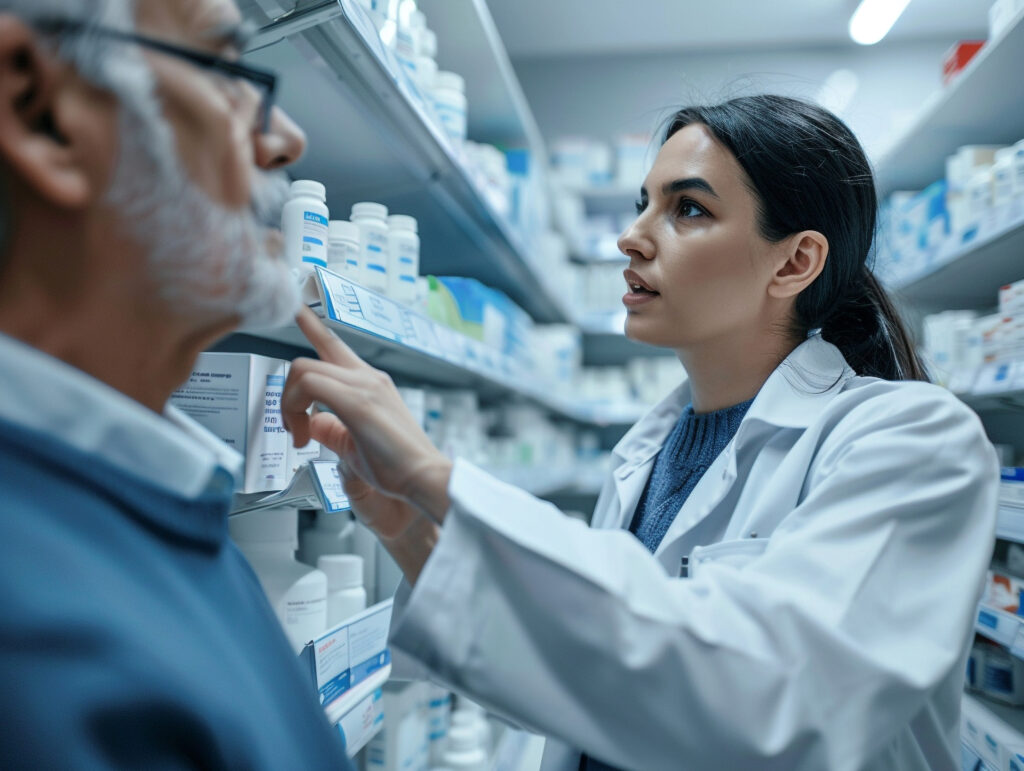Last updated on May 9th, 2025 at 05:28 pm

Pharmacists are the last person in the supply chain as they are the ones who hand out medicines to customers. Most medications are produced by pharmaceutical companies in standard dosages and prepackaged forms, but pharmacists in a store provide the right information to customers. They are responsible for customer literacy as they share knowledge about medicines — dosage, composition, brand names, etc. You will find numerous generic drug pharmacists in your vicinity who regularly provide over-the-counter (OTC) medicines for headaches, common colds, body aches, etc.
And when it comes to prescription medicines, pharmacists serve as a mediator between patients and doctors, guiding patients on getting the most out of their medications while minimizing unwanted or harmful effects.
Defining Pharmacist
A healthcare provider with expertise in the use and administration of medications is a pharmacist. They provide patients with their prescriptions after getting a doctor’s directions. Pharmacists thoroughly understand how medications interact with the body and function so that patients who take them get the best results possible.
Most pharmacists in India are community pharmacists operating in drug stores, supermarkets, big-box retailers, and privately owned pharmacies, including those who offer mail-order services. Other pharmacists provide patient care internally at hospitals and other healthcare facilities.
What skill should pharmacist have for good resume? Pharmacist job Description
Pharmacists can help patients and other medical professionals understand how particular medications interact or their negative effects on the body or mind and ensure patients get their medication and answer their concerns. The demand for generic medicine pharmacists has been increasing at a rapid pace in the market all over the world.
Responsibilities of pharmacists
Before offering patients their drugs, pharmacists in India examine the prescriptions. This ensures that patients receive the proper medications for their health condition and that there are little to no negative effects. Alternative medicines that might be helpful to the patient may also be suggested.
1) Ensuring health and safety
These experts analyze each patient’s medication history to ensure they give the right medicines. By verifying that the patient has just seen a doctor, they also ensure the medications are up to date.
2) Consult with doctors
When pharmacists have a thorough understanding of drugs, they can better instruct patients. They will have to consult alternate drugs or dosage management with doctors. They also have to ensure that the prescribed drugs do not negatively affect patients.
3) Administrative work
Along with many other administrative duties, pharmacists supply medication and keep patient data up to date. This entails managing patient health records, conducting health examinations at regular intervals, and offering patients support. They ensure quality, security, and proper disposal by following healthcare laws and regulations and mixing, packaging, and labeling drugs for consumption (before/after meals, how many times a day, etc.).
4) Counsel with patients
Drugs side effects and harmful medicine interactions are also possible. Pharmacy professionals advise patients when and how to take their medications and warn about possible hazardous interactions between medications and food or alcohol. They could also advise exercising, talking to a dietitian, or taking nonprescription medications like vitamins to maintain a balanced diet. Upon consulting a doctor, they can also propose adjusting the dosage of a drug.
5) Skills of pharmacists
Pharmacists are in high demand. Once properly qualified, a hospital pharmacist can teach other healthcare professionals about medicine. Patients may also profit from this knowledge, especially those who are expecting, nursing, or who have chronic heart, liver, or other diseases.
Pharmacists must use their excellent communication skills to learn more about a patient to handle more difficult circumstances. After gathering these details, they must make a well-informed conclusion regarding the best action.
Leading members of their communities are pharmacists. Without an appointment, a person can walk into their neighborhood pharmacy and ask any pharmacist in India about a prescription and its negative effects.
Conclusion
Medkart is a healthcare platform that educates people in India about generic medicines. Be it our website or 100+ retail outlets pan India, we provide information about generic medications, their uses, side effects, and precautions. You can also order generic medicines online on our website medkart.in, or use Android and iOS applications.
Pharmacists play a vital role in the healthcare ecosystem. As medication experts, they are responsible for dispensing medications, monitoring patient medication use, and providing medication information and education to patients, caregivers, and healthcare providers. At its core, our pharmacists at Medkart are well-equipped to provide health and wellness education to improve patient outcomes, ensure the right medication use, and offer preventative care through generic medicines.